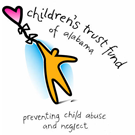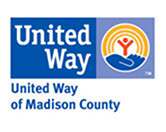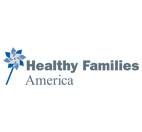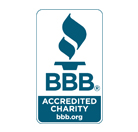“Deepening Victim Advocacy Practice for Children, Caregivers, Self and Team” is an interactive virtual training that underscores the critical and ever-evolving role of victim advocates in the context of their CACs/MDTs. Their work is central to supporting and guiding children and families throughout their involvement with the various systems and services that respond to child maltreatment. Ironically, despite the critical and comprehensive role that victim advocates have, the scope and importance of their work is not always clearly understood or valued by their MDT colleagues.
This training will engage the CAC victim advocates and their director/supervisor and, ideally, allied community- and system-based victim service agency advocates, to cultivate a collaborative approach through shared learning, an exchange of experiences, and honest dialogue, all with the goal of broadening and deepening practice of high-quality victim advocacy services.
Through a holistic approach, attendees will have opportunities to individually and collaboratively explore the complexities and the richness of victim advocacy practice and consider strategies to broaden and deepen the services provided to children and families.
The training consists of four, two-hour virtual sessions.
Session 1: Identity Crisis to Identity Achievement: Who Am I and What Do I Do?
Focus of session:
- How participants define the victim advocacy role;
- History of the Victims’ Movement that guides understanding of implications for current victim advocacy practice, generally and as part of the CAC Movement;
- Impetus for, and current status of, statutory and state constitutional rights for crime victims, including strengths, limitations, and challenges;
- Evolution and revisions of the NCA Accreditation Standards, with particular focus on Victim Support & Advocacy;
- Relevance of Office of Victims of Crime (OVC) Model Standards for victim service programs and providers; and
- Collaboration among community- and system-based victim advocacy providers.
Session 2: Clients’ Pursuits of Safety, Healing, and Justice - A Holistic Approach to Assessment and Intervention
Focus of session:
- Importance of understanding victims’/survivors’ experiences across time and systems, and review of trauma-informed care principles and healing-centered engagement;
- A framework for understanding core victim needs and the advocate’s role in assisting clients in their pursuits;
- Purpose and key considerations for conducting assessments to identify, prioritize, and address victims’ needs; and
- Importance of engaging caregivers about their lived experiences, past and present, empowering them to understand and be proactive in caring for themselves and their children.
Session #3: Elevating the Voices of Advocates in Collaboration with Victim Advocacy Colleagues and MDTs
Focus of session:
- Importance of MDT coordination and collaboration for victim advocacy assessments and interventions;
- Overall strengths and challenges for victim advocates on MDTs and their ability to proactively give voice to victims’/caregivers’ needs and concerns;
- Strategies for ensuring that all victim advocates working with CAC clients are coordinating and collaborating with one another to discuss cases, share resources, and engage in peer support; and
- Ensuring that CAC colleagues fully understand and respect the comprehensive and integral role victim advocates play in general and in MDT case review.
Session #4: Where Do We Go from Here?
Prior to the fourth session, each participating CAC team will convene to collaboratively discuss ways to elevate the role, contributions, and collaborative efforts of victim advocates with their clients and MDT partners. Each CAC team will develop a brief presentation for all training participants that outlines key discussion highlights and proposed action steps. The larger group will have opportunities to ask questions and offer additional ideas and suggestions for further refining plans for implementation.
This project was supported by Award No. 2020-CI-FX-K001 awarded to the National Children’s Advocacy Center by the Office of Juvenile Justice and Delinquency Prevention, Office of Justice Programs, U.S. Department of Justice. The opinions, findings, and conclusions or recommendations expressed in this presentation are those of the author(s) and do not necessarily reflect the views of the Department of Justice or grant-making component.










